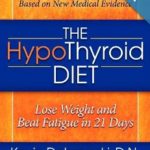Menopause can be a challenging time for a woman as her body begins to change and respond differently to certain situations.
One of the most prevalent issues during and after menopause is significant weight gain. There are several primary causes of the weight gain that must be addressed in order to effectively manage weight during this difficult period in life.
Before discussing how to lose weight during menopause, it is imperative to discuss some of the primary risks associated with weight gain.
Table of Contents
Understanding the Risks
To most, menopause and weight gain have become synonymous, and when the numbers are examined it is easy to ascertain why. More than 30 percent of women between 50 and 59 years old are not simply overweight. They are classified as obese, meaning that they have a body mass index of 30 or higher. This is not simply an issue of pulchritude, but obesity is associated with some major health issues.
According to the Centers for Disease Control and Prevention some of the more serious conditions associated with obesity are:
- Coronary heart disease
- Hypertension (high blood pressure)
- Stroke
- Cancers; including endometrial, colon, and breast cancer
- Type 2 Diabetes
- Mental health conditions
- Sleep apnea and respiratory issues
- High cholesterol and triglyceride levels
- Liver and gallbladder disease
- Osteoarthritis – The degeneration of cartilage and underlying bone within a joint
Reading this list should provide all the motivation that is necessary to incorporate changes into your life that will lead to healthy and sustainable weight loss. There are several vital steps that can be taken to help shed those unwanted pounds, even during and after menopause.
Change Does Not Mean You Have Lost Control
One of the first things that must be done is to come to the realization that you have not lost control.
One of the most common issues that women have when going through menopause is taking on the mindset that they have lost control of their body. Once you begin to believe that you have lost control of your body, you will slowly begin to give up attempting to manage your health.
Yes, there are some things happening that are out of your control; however, there are other things that you can do to help manage the situation to ensure that you are able to properly maintain your health.
The Shift in Hormone Levels
One of the primary causes of weight gain of women during and after menopause is the decrease in their estrogen levels.
Research has revealed that estrogen appears to help women manage their body weight. When estrogen levels are high, women are able to control their appetite and they are more active. As estrogen levels begin to decrease during menopause, women become more sedentary and they tend to eat more.
The reduction of estrogen also slows the body’s metabolic rate.

Become More Active
Now it’s finally time for the million dollar question: How to lose weight during menopause? Well, there are two ways to do it that you should focus on. Food and Exercise. If you have to choose between the two, the single best way to lose weight during menopause is to adopt a more active lifestyle.
As the estrogen levels in your body decrease, your metabolic rate will also decrease. You will need to resist the natural proclivity to become more sedentary and instead become more active.
Being sedentary is not only a result of the lack of energy associated with menopause, but menopause-induced depression can also be an issue that negatively impacts energy and activity levels.
By making a commitment to being more active you can raise your metabolic rate, offsetting the slowing that comes at this stage in life. So make sure you workout or walk for at least 30 minutes a day. The higher the intensity, the better.
If you have difficulties getting started, maybe some of these proven methods to lose excess weight can help.
Consume a High-Nutrition Diet
The other way to lose weight is by eating healthier foods. It is important that healthy food choices be made. Whereas you may have been able to get away with poor eating habits in the past, that is no longer the case.
Women desiring to lose weight in menopause should consume foods that are high in nutritional value and low in caloric content – foods such as cruciferous vegetables, fruits, nuts and lean meats such as skinless chicken breast and salmon. Why not kick start your day with a tasty and nutritious breakfast smoothie?
Refrain from eating fast food and other foods that have a high caloric density with little to no nutritional value.
Drink Green Tea in Abundance
Apart from exercise and healthy food, there are other ways that can help as well. One is to drink green tea. Green tea is loaded with antioxidants that can help rid the body of toxins that may be draining it of energy. Detoxifying the body can also help increase the body’s metabolic rate, helping you lose weight faster.
The key to losing weight is to take control over the things that you can. This means managing your diet and activity levels. Remember that even during menopause, if you take good care of your body, the body will take care of you!



